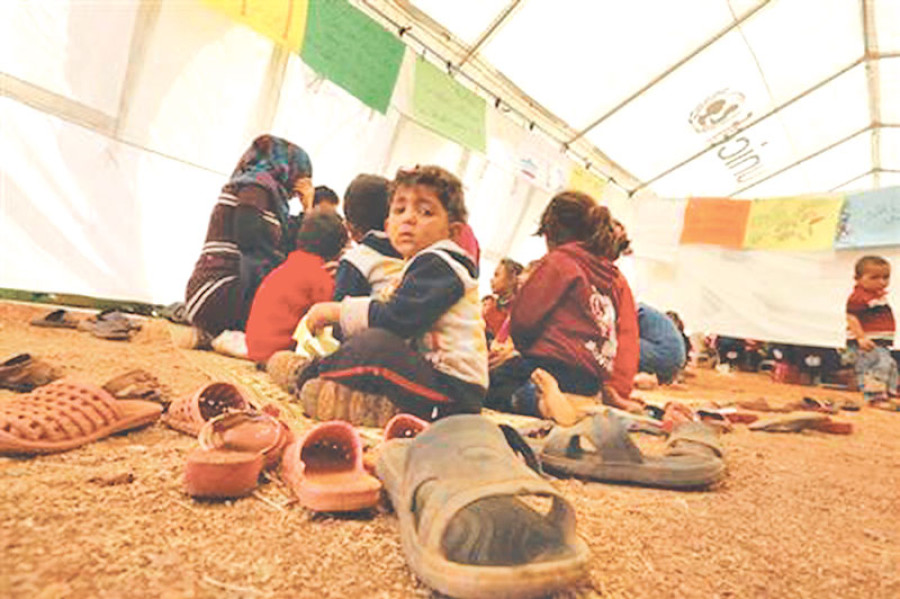Opinion
Blessed to have a nationality
Amidst many ‘stateless’ people globally, one must feel grateful to have a nationality
Illa Mainali
I was once walking through the streets of Beirut, admiring its beauty, development, infrastructure, blue ocean, white sand and good-looking people, when my mind wandered away. Why is Nepal not able to develop infrastructures like other countries? I asked myself. Why are issues such as poverty and child-marriage still rampant in my society? Why is it that out of the many countries that I have visited—even including other least developed countries—my country is the one which looks like it has a long way for development?
It was my first evening in Beirut. I was in Lebanon on a UNICEF Executive Board Field Visit, representing the Asia-Pacific group of countries. We were a team of diplomats and secretariat members representing different regions of the world. We were there to see how UNICEF has worked for the betterment of lives of children around the world.
Early next morning, we headed towards the Beqaa Valley where we saw children studying in tents and makeshift structures. Although they could not get admission into schools easily like Lebanese citizens, efforts by the Lebanese government and the UNICEF, had made sure that these children went to school. Around 250,000 refugee children in Lebanon are still unable to go to school because of poverty and other factors.
Many bright children and young adults are deprived of education because they are refugees, or because they do not have a nationality. Deprived as they are of education, what kind of a future do these children have?
A similar visit to a camp for Palestinian refugees exposed us to the extremely poor living condition the refugees live in. Limited access to water, overcrowded camps—the sight was truly heartbreaking.
Many developing countries including Nepal (which has been hosting Bhutanese and Tibetan refugees despite not being a party to the 1951 Convention on Refugees and its protocol) are hosting large numbers of refugees on humanitarian grounds, although these countries are struggling to feed its own citizens. Developing regions host 84 percent of the world’s refugees.
Statelessness
These were the stories of refugees I could interact with in Lebanon. I found out during the interaction that many of these children are stateless. Not all the refugees are stateless, but the refugee crisis is set to create a huge problem of statelessness, with a wide number of children growing as “stateless generation”. Under Syrian law, only men can pass citizenship on to their children. Similar is the case in many other countries. Many among those who are resettled in other countries are women who lost their husband and are being resettled with their children or are pregnant at the time. Also, children of the couples who do not have the documents they need to prove their own legal status are stateless.
The number of stateless people globally is likely around 15 million. These persons have to focus on a day-to-day survival, poverty being the biggest problem caused by statelessness. Statelessness is as much an economic burden as a social and political one. Discriminated and dislocated from one place to another, stateless persons are made to feel like “others” and “unfit” in the society. The stateless do not enjoy the protection that people with nationality do domestically and internationally. Although any individual is entitled to enjoy basic human rights, the stateless are denied even that. Nationality should not come between any state or government and a human being when it comes to providing basic human rights, but that is unfortunately not the case as many national governments abdicate that primary responsibility.
These few days trip have been eye opening for me. For the first time in my life, I realised how irrelevant it was of me to worry about trivial things like where my next gathering would be or when would I be getting a promotion. Greater problems like people not having access to basic necessities in life like health care, education, safe drinking water and sanitation plagued people’s lives in ways I had not imagined. More importantly, over fifteen million people in this world are dreaming about having a nationality some day.
Sitting in my hotel, I reflected upon questions like what it is like to have no home? How does it feel if one cannot travel, find a job or vote? And how does it feel to have no identity? It dawned upon me how privileged and happy I was to have all that. I decided I will never take any of these things for granted. I had a house, a car, a good job and a loving family. Above all, unlike the many people I came across in Lebanon, I had a nationality and absolute freedom.
Mainali is the Section Officer for the South Asia Division, Ministry of Foreign Affairs, Singha Durbar




 18.12°C Kathmandu
18.12°C Kathmandu










